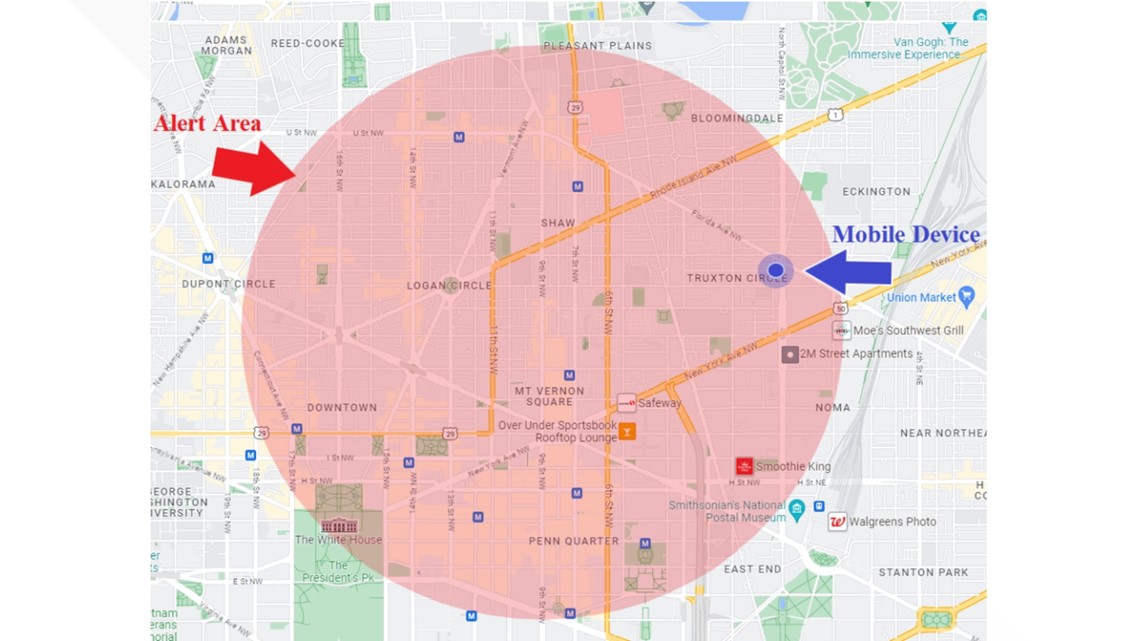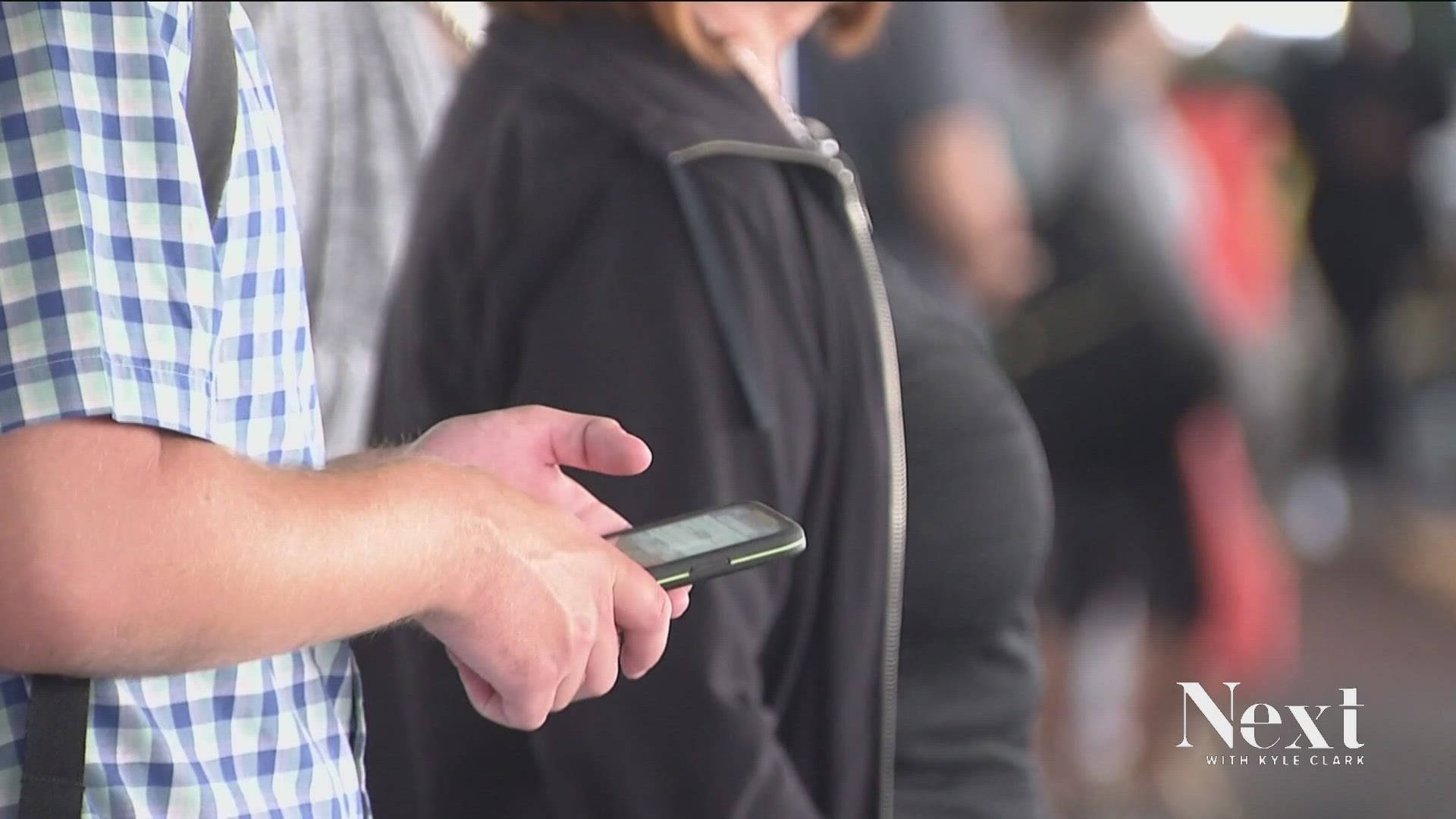WASHINGTON — The Federal Communications Commission is adopting changes to the emergency alert system responsible for sending AMBER Alerts and other life-saving information to cell phones, following through with part of a slate of improvements endorsed by emergency managers in Colorado.
The decision, adopted by the FCC in mid-October, requires cell phone networks and manufacturers to send Wireless Emergency Alerts, or WEAs, in more than a dozen new languages, and include maps that show people their location compared to the area of the threat.
“These improvements will give people precious time to protect their families, homes, and businesses during emergencies,” Colorado U.S. Sen. John Hickenlooper, who called for improvements after the 2021 Marshall Fire, said.
“They are among the most vital reforms we can make under existing law to make sure these warnings reach people when they need them most,” FCC Chairwoman Jessica Rosenworcel said upon the FCC’s passage of the changes.
The federal WEA system allows local first responders to send brief messages to every cell phone in a certain area drawn on a map. It’s different than opt-in, subscription-based alert systems like Everbridge and Smart911, which use databases of cell phones and landline numbers tied to addresses in addition to optional sign-ups to communicate emergency information.
Right now, WEAs can only be sent in English and Spanish, excluding more than 300,000 Coloradans who primarily speak a different language, according to the Colorado Health Institute. The FCC will require cell phone companies to send alerts in 12 other languages as well as American Sign Language.
The additional languages include Chinese, Tagalog, Vietnamese, Arabic, French, Korean, Russian, Haitian Creole, German, Hindi, Portuguese and Italian.
The plan does not require the people writing the alerts to translate them. Instead it requires the translation to happen once cell phones receive alerts. Phones should display alerts in the language devices are set to. If a phone is set to a language that is not yet available, the FCC said the phone should display the English message.
The FCC is setting a 30-month timeline to accommodate the additional languages. It’s unclear whether the changes would be available on all cell phones or only newer phones, as previous WEA updates have been.
The plan also requires cell phone companies to include maps within alerts. You’d receive a WEA, which would include a link that would open a map app on your phone. The map would illustrate the area the alert was sent to and your location within it. If location services are not on, the map function would not work, the FCC said. The map capabilities would be rolled out in a three-year timeline.


The FCC has considered changes like these since 2016, but industry groups have consistently pushed back.
“Industry commenters were generally opposed due to concerns about bandwidth limitations of cellular networks, delay of WEA receipt, and costs,” the FCC wrote.
The plan also requires cell phone companies to accommodate two public-facing tests per county per year, and to create a public database illustrating how much of their coverage area can receive WEAs. They’ll also have to say whether there are models of phones on their networks that cannot receive WEAs.
The rule changes, however, do not address all of the concerns brought forward by emergency managers in Colorado. The FCC cited 9NEWS’ reporting in April as it proposed a slate of improvements to the WEA system, including improved geo-targeting so messages would be less likely to be received by people who aren’t in danger.
“When we do WEA now and the 911 center sends that out, it’s going from Berthoud down to Arvada to Brighton all the way up to Nederland and we drew a polygon that’s literally for a neighborhood in Boulder,” Boulder County Office of Emergency Management Director Mike Chard told 9NEWS last year. “We can’t somehow get that nailed down.”
Newer phones can filter out alerts that don’t apply to their location, with accuracy down to 1/10th of a mile. Older phones, or phones with location services turned off, are unable to screen alerts in the same way.
Coloradans saw that play out in May, as severe weather hit the Denver metro area. People far from tornado-warned storms still received alerts from the National Weather Service telling them to seek shelter.
Emergency managers often don’t find out about overreach of alerts until after they’ve hit send. The newly-approved changes do not create a mechanism for emergency managers to see where alerts are received.
Officials in Adams County, Arapahoe County, Boulder County, Jefferson County and Larimer County asked the FCC in July to encourage cell phone manufacturers to make new phones more affordable, so the public could buy phones with those enhanced location abilities. The changes don’t address that proposal either.
The FCC left open the possibility for additional languages to be added to the system after the initial expansions. Rosenworcel also called for legislative changes to mandate WEA participation by cell phone providers.
“These are the devices we have in our palms, pockets, and purses at all times. Every carrier and every device should be capable of receiving these warnings,” Rosenworcel said.
From the start in 2012, the system, which FEMA calls “an essential part of America’s emergency preparedness,” has been voluntary for cell phone companies to participate in.
All the big companies do. But the voluntary nature of the system combined with the lack of profit incentives means WEA’s technological development happens at a slower pace than the rest of the tech industry, former FCC Public Safety and Homeland Security Bureau Chief David Simpson told 9NEWS earlier this year.
“We had to [make changes] in steps, so that we wouldn't cause wireless providers to say, ‘I'm out,’” Simpson said. “There's no money in this for them, right? It's not a profit center.”
“This should not be voluntary,” Rosenworcel said. “It’s time to update the law.”
SUGGESTED VIDEOS: Latest from 9NEWS

